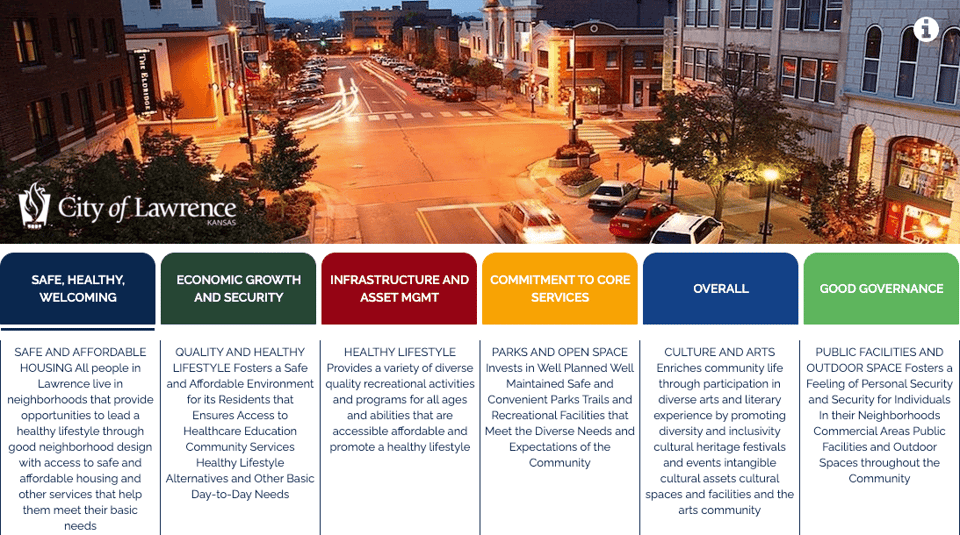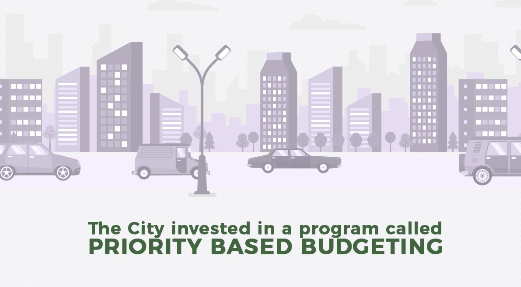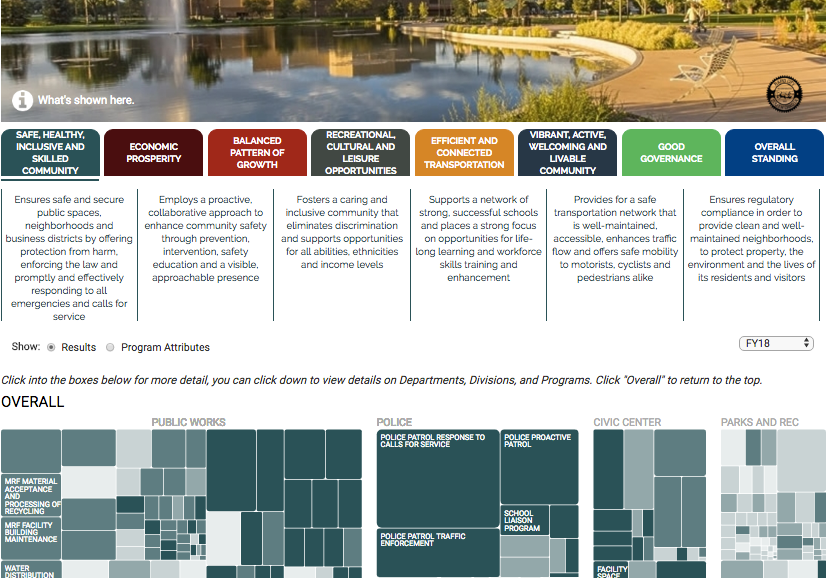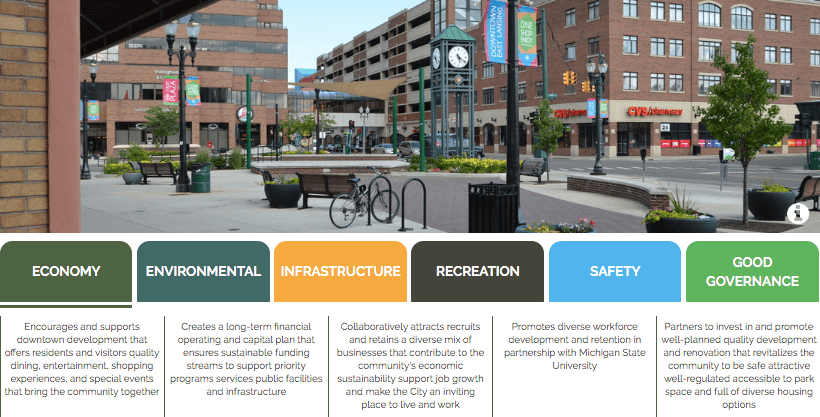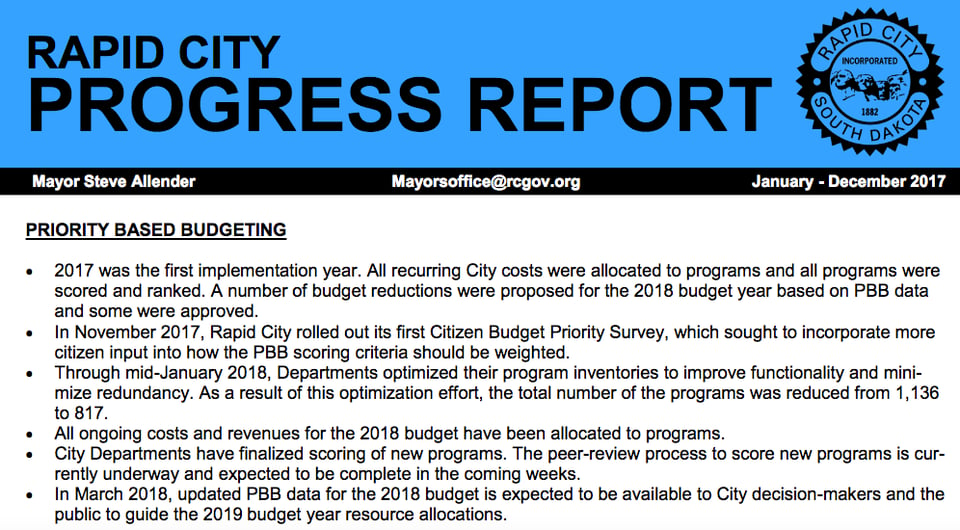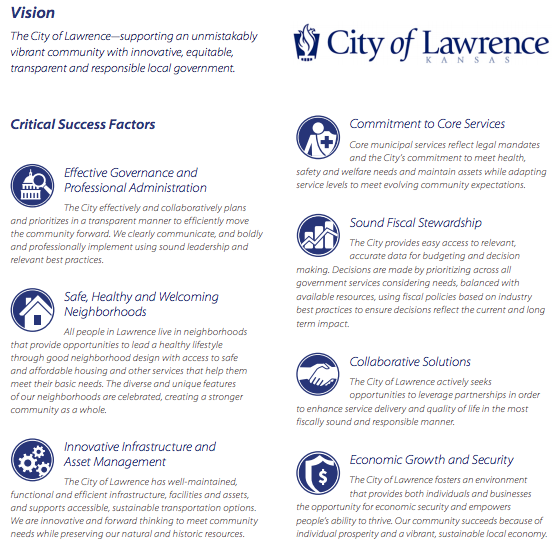"The scoring matrix ties into the city’s priority-based budgeting process, which aims to better identify the cost of city services, help link funding decisions to commission priorities, and help identify potential efficiencies."
In 2018, the City of Lawrence, KS implemented Priority Based Budgeting (PBB), an approach to budgeting that assesses the desired results of a community against the programs the government is currently offering and how impactful those programs are in achieving the desired outcomes.
In May 2019, while Lawrence was applying their PBB data in support of developing their 2020 budget, they simultaneously launched their Open PBB Citizen Data Portal, becoming the fourth city in the nation to do so (City of Lawrence Launches Open PBB Data: Advancing Program Level Data + Evidence to Achieve Community Results).
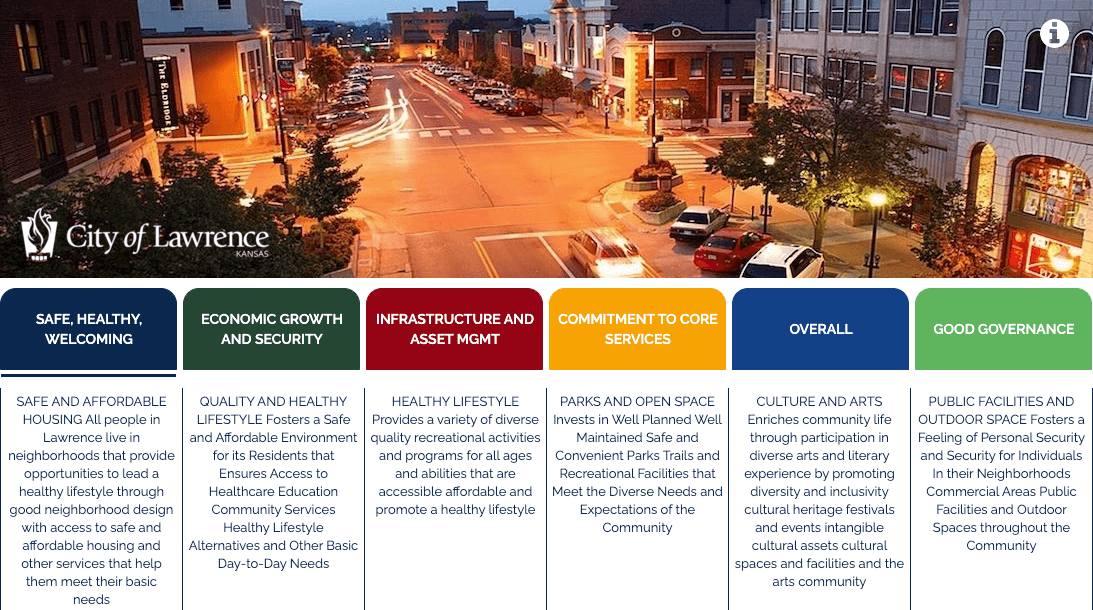
And now Lawrence continues to innovate their application of PBB data through updates to their program scoring (Lawrence City Commission to consider new scoring guide to help make spending decisions).
The PBB Data Layers: Program Scoring
Program Scoring is an exercise that contributes to the overall program level data platform. The development of a Program Inventory and allocating costs/revenue to each program (Program Costing) typically take place prior to Program Scoring.
Program Scoring involves evaluating your programs to give shape, scope and add communication opportunities. Scoring creates clarity around who your program serves and to what extent, how it's funded, what mandates exist, and how popular a program might be. Understanding these points can create real opportunities for decision-making.
Additionally, some PBB communities take program scoring further. Denver, CO has incorporated an "equity" program score to evaluate opportunities to enhance equity at the program level in their community. And Ann Arbor has established a "climate impact" score to align programs with the sustainability outcome the city seeks to achieve.
Other examples of custom scoring attributes include homelessness, opioid crisis, community trust and vulnerable populations.
Lawrence Scoring Update
From this LJ World article written by Rochelle Valverde, "As part of their effort to better prioritize their budget decisions, city leaders will soon consider a new scoring guide that would affect how millions of tax dollars are spent."
"As part of its meeting Tuesday, the Lawrence City Commission will consider approving a proposed priority-based budgeting scoring matrix, which will identify spending priorities by scoring city programs against the commission’s new strategic plan."
"The scoring matrix ties into the city’s priority-based budgeting process, which aims to better identify the cost of city services, help link funding decisions to commission priorities, and help identify potential efficiencies, according to a city staff memo to the commission."
"The commission adopted its new strategic plan last year, replacing one created in 2017. The plan lays out five goals, or outcomes, and six commitments the city will make as it pursues those outcomes. The outcomes are a welcoming and vibrant community; safe and functional neighborhoods; trusted public and community-based safety; economic security and a sustainable local economy; and well-maintained, functional and efficient infrastructure. Among other things, the commitments include community engagement, equity and inclusion, sound fiscal stewardship and environmental sustainability."
"Buschkoetter said the new priority-based scoring method would be specifically for city programs and services. That includes a variety of services the city provides, such as water treatment, solid waste pickup and public transit service."
"As part of the scoring process, each city program would be classified into one of two groups and scored against the matrix, according to the memo. The two groups would be community programs, such as planning or trash collection, and internal governance programs, such as staff training or accounts payable. City departments would then assign each program or service a score based on how well it aligns with the outcomes and commitments of the strategic plan, and then they would place the programs into quartiles based on the overall score. Those scores would then be reviewed by cross-departmental groups of city staff members to ensure consistency across departments and would go through a final analysis and review before being presented to the City Commission for consideration."
Related Articles:
